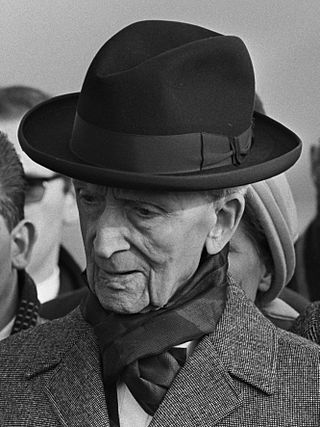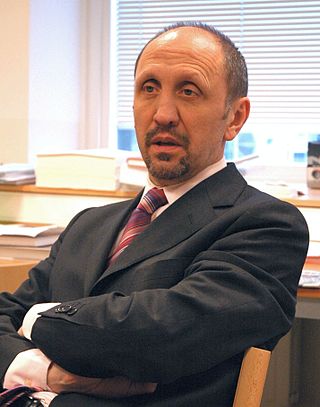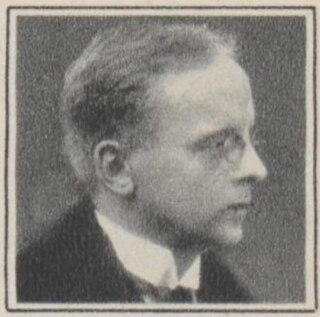
Belgium, officially the Kingdom of Belgium, is a country in Northwestern Europe. The country is bordered by the Netherlands to the north, Germany to the east, Luxembourg to the southeast, France to the south, and the North Sea to the west. It covers an area of 30,689 km2 (11,849 sq mi) and has a population of more than 11.5 million, making it the 22nd most densely populated country in the world and the 6th most densely populated country in Europe, with a density of 376/km2 (970/sq mi). Belgium is part of an area known as the Low Countries, historically a somewhat larger region than the Benelux group of states, as it also included parts of northern France. The capital and largest metropolitan region is Brussels; other major cities are Antwerp, Ghent, Charleroi, Liège, Bruges, Namur, and Leuven.
The Liberal Reformist Party was a liberal political party active in Wallonia and Brussels in Belgium. The PRL grew out of the Francophone part of the unitary liberal Party for Freedom and Progress (PVV-PLP) in 1971 and merged into the Reformist Movement (RM) in 2002.

Jean Joseph Camille Huysmans was a Belgian politician who served as the prime minister of Belgium from 1946 to 1947.

François-Joseph Navez was a Belgian Neoclassical painter; known for his portraits and genre scenes.

Vincent Paul Marie Van Quickenborne is a Belgian politician of the Open Flemish Liberals and Democrats who served as Minister of Justice in the government of Prime Minister Alexander De Croo from 2020 to 2023.

Matthias Edward Storme is a Belgian lawyer, academic and conservative philosopher.

Johan Cyrille Corneel Vande Lanotte is a Belgian politician. He is a member of the SP.A, and became its party president on 15 October 2005. He handed down his leadership positions after the SP.A lost in the 2007 general election. Between 1995 and 2014, he served more than 13 years as Deputy Prime Minister, the longest period for a Flemish socialist after WW II. In his last term he served as the Minister of Economy, Consumer affairs and North Sea in the Di Rupo I Government. With the formation of a new Centre-Right federal government, which excluded his party, Johan Vande Lanotte returned to local politics in October 2014 in Ostend, where he took up his position as alderman for the economy and tourism at Ostend City Council. From August 2015 until the end of 2018 Vande Lanotte was the mayor of Ostend. During his political career he continued to work as a professor at the University of Ghent, specialized in Constitutional Law and Human Rights. Since 2019, he is a lawyer in the law office Van Steenbrugge in Gent. He was the initiator of the Turkey Tribunal held in Geneva in September 2021. Vande Lanotte also published one of the six reports of the Turkey Tribunal entitled "Crimes Against Humanity under the Rome Statute in Turkey Today"

Maurice Auguste Count Lippens was a noble Belgian businessman, politician, and colonial civil servant and lawyer.

The Belgian Labour Party was the first major socialist party in Belgium. Founded in 1885, the party was officially disbanded in 1940 and superseded by the Belgian Socialist Party in 1945.
Léo Pétillon was a Belgian colonial civil servant and lawyer who served as Governor-General of the Belgian Congo (1952–58) and, briefly, as Minister of the Belgian Congo and Ruanda-Urundi (1958).

In the history of Belgium, the period from 1789 to 1914, dubbed the "long 19th century" by the historian Eric Hobsbawm, includes the end of Austrian rule and periods of French and Dutch rule over the region, leading to the creation of the first independent Belgian state in 1830.
The general strike of 1913 was a major general strike in Belgium. It was the third general strike aimed at forcing electoral reform and, like the general strike of 1902, was particularly aimed at ending the system of plural voting. It officially lasted between 14 and 24 April and brought out between 300,000 and 450,000 workers on strike. Despite its large participation, it was relatively peaceful.
Events in the year 1958 in Belgium.
Events in the year 1865 in Belgium.
Events in the year 1870 in Belgium.
The following lists events that happened during 1905 in the Kingdom of Belgium.

Marc Botenga is a Belgian politician of the Workers' Party of Belgium (PVDA-PTB). In 2019, he was elected as member of the Ninth European Parliament as part of The Left in the European Parliament party group. Botenga is the first MEP to be chosen for the PVDA-PTB.
Events in the year 1836 in Belgium.
Events in the year 1838 in Belgium.

Josse-Émile van Dievoet was a Flemish politician and lawyer. He served as Belgian Minister of Justice.











